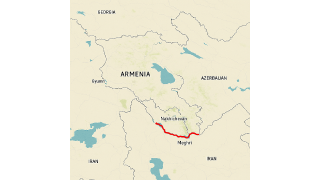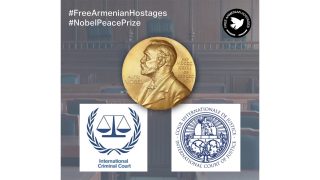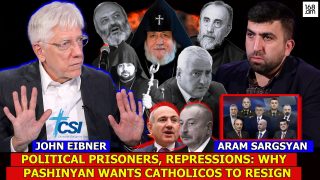
EAEU or EU—choice of values, a security issue, a bluff, a political caprice or artificially introduced dilemma?
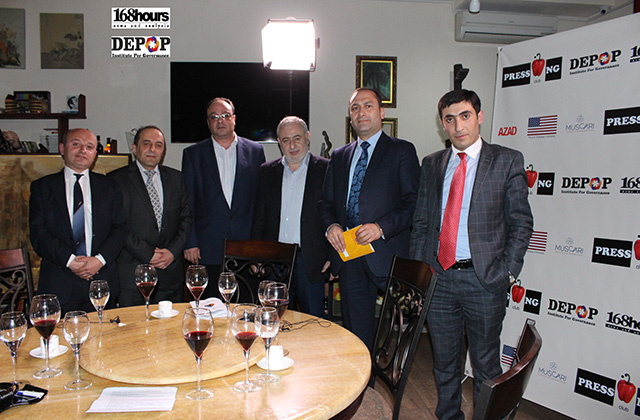
Various in-depth issues bothering our country, our society are being touched upon during the debates launched at “Pressing” Club under “168 Hours” newspaper. The project is implemented in partnership with “DEPOP” Institute for Governance, “AZAD Pharma AG” ltd and “168 Hours” newspaper.
Week’s topic is: foreign policy priorities of political parties and blocs, taking part in the upcoming Parliamentary elections: “EEU (Eurasian Economic Union) or EU (European Union)?”
Participants of the debate are: Karen Bekaryan, representative of the Republican Party of Armenia (RPA), NA MP, head of “European Integration” NGO, Ararat Zurabyan, candidate for the MP of “Tsarukyan” alliance nominated by the proportional list and preferential voting system, president of Armenian National Movement (ANM), Stepan Safaryan, candidate for the MP of “Free Democrats” alliance nominated by the proportional list, political scientist, Artak Zeynalyan, representative of “Yelk” alliance, member of “Republic” party, human rights defender, Edgar Arakelyan, candidate for the MP nominated by “Armenian Renaissance” party (former “Rule of Law” party).
The debate is conducted by Ruben Mehrabyan, expert at the Armenian Center for National and International Studies (ACNIS).
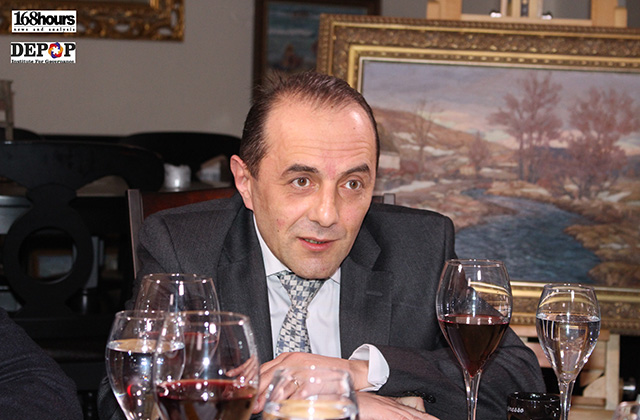
Ruben Mehrabyan: The topic for discussion is foreign policy priorities of the political parties and alliances in the upcoming Parliamentary elections, in particular, Eurasian Economic Union (EAEU) or he European Union (EU)? This dilemma seems not to have its answer within the society, expert and political circles.
Let’s start from the leading political party—Mr. Bekaryan, what foreign policy priorities have been set forward by your pre-election program, in particular, how do you imagine combination of EEU, to which Armenia joined, and new agreement with the EU.
Karen Bekaryan: We all imagine that in case of foreign policy manifestations of the leading political party, as a result of elections, there shouldn’t be an expectancy for global changes. In case of Karabkh issue the approach is simple, it has been repeatedly stated: we stress recognition of the right to self-determination of the Republic of Artsakh and here it refers to the international format, from which: the possibility of its realization by Azerbaijan, which will be the biggest beat of negotiations, and will lead them to a rather constructive stage, will provide the opportunity to record some result. At the same time, a few elements are linked to Artsakh—our defensibility so that there was no any desire by Azerbaijan to resolve the issue militarily, development of economy of Artsakh Republic and etc. In this case it was rather strictly set that the negotiations developed in a civilized manner, firstly, several logical elements should function. It refers to full implementation of the ceasefire agreement, also investigative mechanisms, around which agreements have been reached, and which Azerbaijan doesn’t fulfill. Thus, use of possible force and threat of force should be excluded.
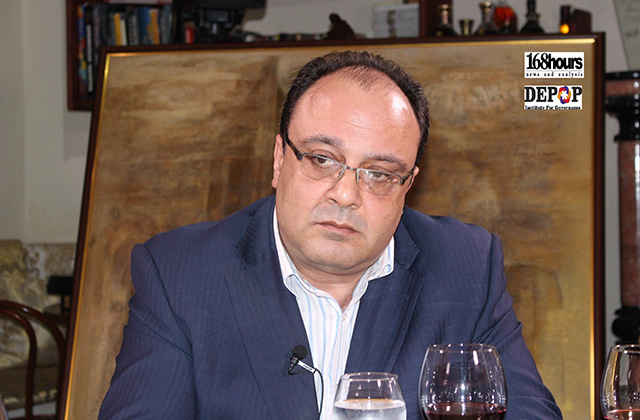
I won’t reflect to Armenia-Turkey relations: you know there are no relations, the initiative by the Armenian side to establish diplomatic ties without preconditions, reach opening of borders and etc., we may say was failed by Turkey, and it passed on to the language of preconditions and there the process stands now. Great work has been done related to recognition of the Armenian Genocide, it’s also enshrined in our pre-election program, i.e. the direction we adopted will proceed.
If we reflect to power centers, there are allied relations with Russia and their deepening with all existent formats, let it be cooperation within CSTO, EEU, CIS, bilateral field and etc. With the US also having the opportunity that administration change has been recorded, there is a possibility to more deepen partnership ties with their accentuations, logic, which was available in the agenda of permanent partnership field. Rather positive dynamics is observed in relations with the EU, end of talks around the new agreement has been officially stated, and in near future we are waiting for the upcoming rounds—initialing, signing and ratification. And of course, the European bloc doesn’t start and end with Armenia-EU agreement, a big component is allotted to bilateral ties with European countries. Throughout recent years we have an interesting dynamics of relations with China. And, of course, the Middle East exists in traditional directions, relations with neighbors are observed among the most essential elements (I mean Georgia, Iran) and enlargement of partnership there, regional projects. The joint projects, issues are observed as a priority.
Reflecting to the dilemma of integration processes you mentioned, I consider that dilemma a rather artificially set. Our membership to EAEU has objective preconditions under it, and there is nothing unnatural. It’s another issue that it shouldn’t have been done on our account, and today the already ended negotiations with the EU around the new agreement shows that we have deepening to the extent that it was imaginable that it was possible by not violating other international agreements. And it’s clear what kind of a market EEU opens for us—it’s directly and indirectly linked to our other elements, and accordingly, the possible “both…and” dilemma is artificial to me.
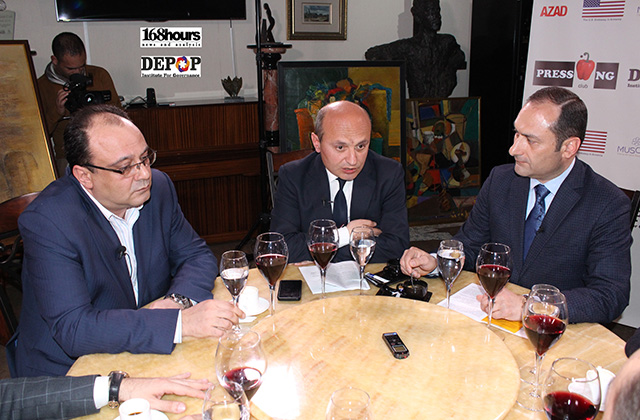
Ruben Mehrabyan: Mr. Zurabyan, by which part “Tsarukyan” alliance agrees with this pursued policy or these priorities, which Mr. Bekaryan has brought and by which part it opposes to all this? And generally which are foreign policy priorities of your alliance?
Ararat Zurabyan: The topic is very hard for me as an individual, as I should introduce some provisions and directions, part of which I don’t personally share. Personally I’ve been supporter of deep European integration, and generally I supported signing the Association Agreement (AA) and I don’t stop being one. However, today, in fact, I introduce “Tsarukyan” alliance, with which we have several disagreements regarding different issues, and in this issue there is a difference in approaches. “Tsaruyan” alliance, not being on the top of the authorities, is a bit free and can clarify issues a bit differently. Naturally, it highlights generally integration processes irrespective of the fact whether it’s European integration, which the alliance stresses or also integration with other organizations as well, observing wide opportunities for Armenia’s economic development.
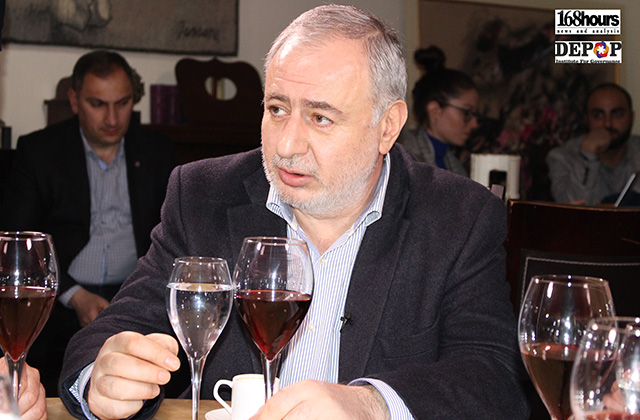
Let’s be a bit pragmatic: we live in a world, which besides our imagined structural situation, has certain peculiarities. Suppose, signing of our AA or deep relations to that end, naturally, cause serious jealousy among our partners and a vivid proof was the Ukrainian scenario, developments, which took place in this post-Soviet space and we edified developments, which were not so welcomed. Thanks Goodness, we are free from this calamity.
As for how we should develop these relations, we consider, EAEU, finally, is an economic union, and all the opportunities it provides should be maximally used. Unfortunately, the Armenian production doesn’t comply with norms functioning in the EU space, even if we signed the AA, things would have been rather complicated in numerous directions. I also rely on the capability of Europeans to respect civilization values, and I’m sure, if Armenia has an economic union to provide to Europe, the latter won’t close its doors before Armenia compared with the other side. We should take something similar into account, that these integration processes regarding their positive or negative sides, have something, which was very practical at least for the Armenian society, if we didn’t take any other circumstance into consideration, we have Artsakh issue, which I consider, will yet take a lot of time and efforts, we consider efforts exerted by the authorities aren’t enough, the policy should have been much more initiatory.
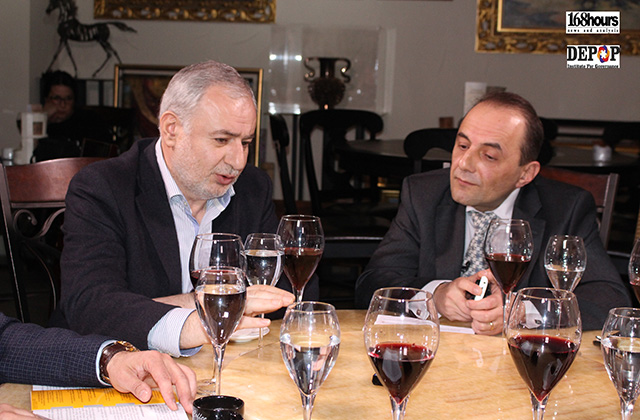
We think after the April developments our foreign office should have been more active. We are also of the opinion that the conflict exists, and these steps taken by the state besides giving this or that assessment provided the opportunity that Armenia had military systems, which Armenia would hardly possess, and I don’t exclude that otherwise the adversary could have had them.
We also consider that generally touching upon the Artsakh issue has entered a point it should exit, as we mention that any negotiation should be without preconditions, no matter where it might be, however, it’s obvious here that without participation of the Republic of Artsakh, launching of negotiations is unacceptable. This is necessary as a practical demand—the Armenian side should constantly have. I believe this is a mandatory element, as the issue, finally, doesn’t relate to Syunik region, but to the Republic of Artsakh, its fate and holding negotiations without people, who are there, isn’t proper.
Ruben Mehrabyan: Mr. Arakelyan, you introduce a political party, on the flag of which starts resembling that of the EU are found, however, on the other hand, your party leader, while occupying the position of Secretary of the National Security Council, CSTO academy was being built. Which are foreign policy priorities of your party, and particularly, what is Armenia’s posture like in integration projects upon your imagination? To which extent do you share present-day policy and what would you change?
Edgar Arakelyan: First, let me start from the first part of your question linked to CSTO academy. I should state that our party leader Mr. Baghdasaryan not only founded CSTO academy, but also French University in Armenia, which provides rather qualified education in compliance with European standards.
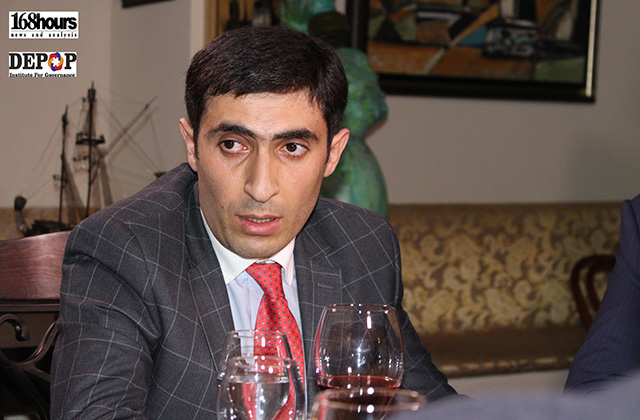
As for foreign policy approaches, we have repeatedly stated that Armenia should implement active initiating policy, it refers to active political approaches in the region. For instance, when Iran’s nuclear deal was recorded, countries stood in a row to visit Iran, however, passiveness was noticed from the side of Armenia. It also refers to relations with Georgia, to relations with other regional partners. From this perspective we consider both economic and political components will be more activated. We have repeatedly expressed regarding integration processes with EEU, the EU, the USA, and we consider while involving in any integration process, naturally, ongoing situation in Armenia should be taken into account.
One of the reasons of membership to EEU was the existent situation from both economic and military security perspectives, it’s another issue that possibilities of EEU aren’t fully used. We consider Armenia should pursue the policy of not “either…or”, but possibly bring to the balance field. Naturally burden on one side will be much more on account of our military, military-economic, military-political relations with Russia, as well as Artsakh unresolved conflict. My colleague also brought Ukraine’s example, we don’t want that such precedents were recorded in Armenia.
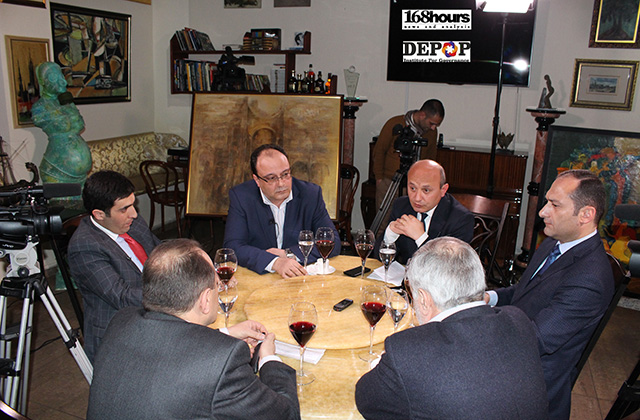
As for relations with the EU, we have stated that it isn’t EEU countries that can serve an example of fair judiciary or free market economy, i.e. our main accentuation should be not going to any pole of “either…or”, but to possibly balance foreign policy, in particular stress regional cooperation.
Ruben Mehrabyan: Mr. Zeynalyan, your alliance comprises political parties, which have constantly criticized the pursued foreign policy, they used to appear with different proposals, and now, during the pre-election campaign, they continue criticism. What changes does your alliance propose? What would you change in the functioning foreign policy?
Artak Zeynalyan: Firstly, let me reflect to the program introduced by the leading political party: there is an impression that they pretend for power, and have never be in it, and don’t bear responsibility for its implementation, i.e. under being the power for more than a decade they should have been implemented. We consider missing of Artsakh Republic from negotiations a big political mistake, for which the incumbent authorities and the government bear the responsibility. Our priorities include: we’ll pursue formation of a European-style legal, democratic state. We don’t consider membership to EEU correct.
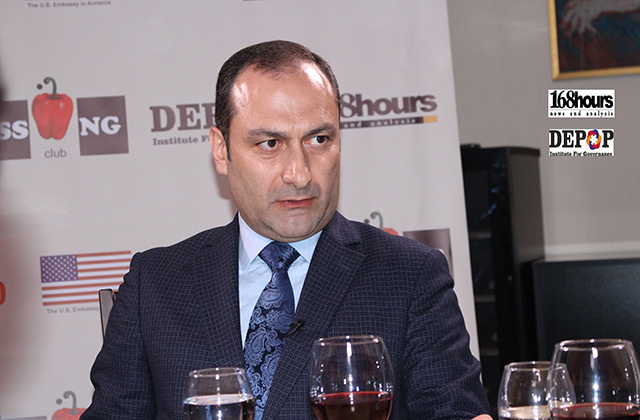
By all this, we’ll implement works to seek alternatives for Armenia’s foreign policy provision. It’s also very important to us that negotiations were launched within CSTO regarding clarification of allied responsibilities of member countries towards one another. CSTO member countries very often show big resistance toward Armenia, sometimes even showing rather hostile attitude in their external relations, than rather neutral states, not involved in CSTO.
Another foreign policy priority for us is negotiations with neighboring countries toward transit of Iranian energy resources. Also measures will be taken with the countries of the region toward developing equally dignified and mutually beneficial relations with them. It was touched upon that measures will be taken by the leading political party toward restoration of military balance: it hasn’t been and isn’t implemented in Armenia, we’ll develop it to restore that balance, so that Artsakh issue military settlement was in no way possible.
We see resolution of Artsakh through negotiations, military settlement of this issue can’t be recorded. Also a settlement is needed, under which there will be no losers, so that lasting peace and development was established. Military conflict isn’t beneficial and those measures can be directed to solution of other issues and country’s development. Of course, there is another solution as well: making defects as effects—in case of productive governance military-industrial system may be developed as well, and an attempt should be made to turn the negative phenomenon into a certain effect. Basically this is what we propose.
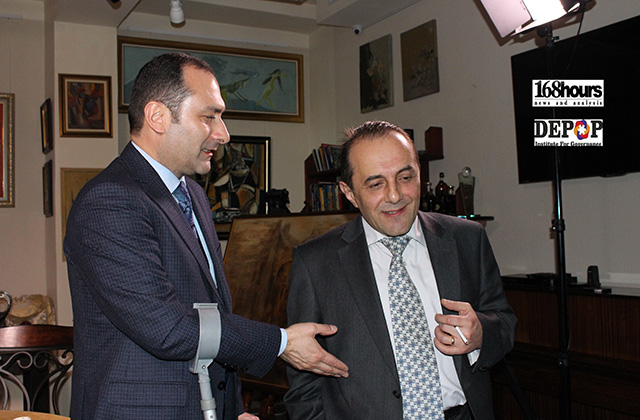
Ruben Mehrabyan: Mr. Safaryan, the political party you represent is the sharpest with criticism in foreign policy and a big section is provided in the pre-election program to foreign policy.
Styopa Safaryan: First and foremost, RPA should be deprived of the right to lead the country in this direction. I say this with all responsibility, as results of 3 September 2013 decision let me introduce in figures: Armenia’s trade turnover sharply declined—in 2016 compared with 2014 import has reduced by 28%, export had grown only by 16% only due to our “foxiness”, we exported Turkish tomatoes and recorded growth exclusively on its accounts, which out of clear reasons, can’t be recorded every year. Armenia’s external debt has grown from USD 4.4 billion by 26%, reaching USD 5.6 billion [as of January 2016 Armenia’s external debt comprises USD 4 billion 836 million—“168 Hours].
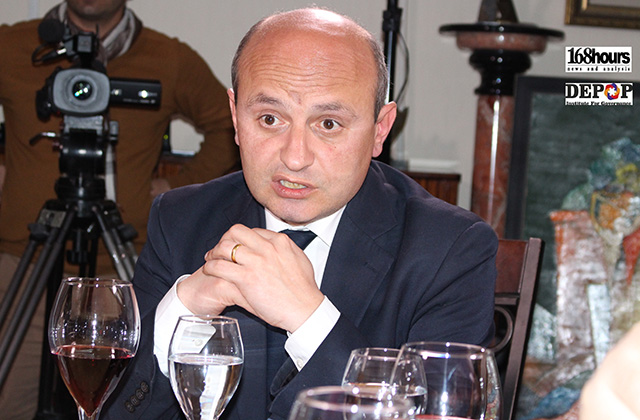
Based on this year’s report our indices have dropped regarding infrastructures, compared with our neighbor Georgia, our indices regarding human rights and freedoms have worsened, accordingly, it’s impossible to build a European-style country in an incomprehensible organization called EEU—democratic, legal, socially united and fair. Accordingly, the first issue should be suspending this course of the state and bring Armenia out of EEU. As you know, Khachatur Kokobelyan, head of “Free Democrats” and NA MP has circulated that draft for already a year.
Our team introduces a clear view for Armenia’s future, which is full integration and membership to the European family. This isn’t a political caprice, this isn’t an issue of orientating before the dilemma, this is a security issue for Armenia, as integration means fulfilling the resources you lack and implement it in a multilateral format. What Armenia came across since the membership of 2014 is beyond any imagination. And we continuously frightened our society with Ukrainian Maidans, annexation of Crimea, but no one intends to give an in-depth explanation what happened in the period of April 2-6, 2016, which seems to be the price we paid as a result of membership to EEU.
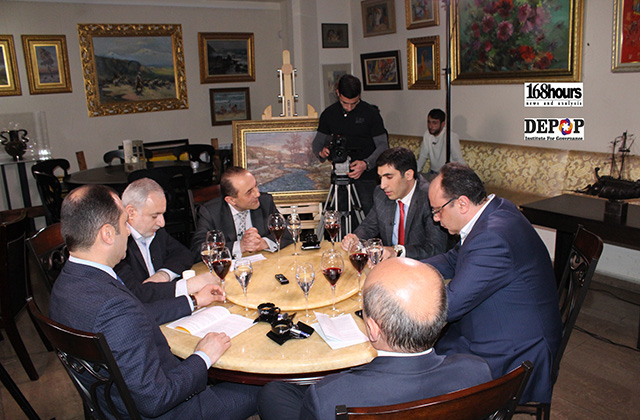
My colleagues introduced the situation of ill-famed relations with Kazakhstan and Belarus within CSTO and EEU, which in many cases are really hostile. However, in this regard let’s understand one point: if we seek multilateral integration with them, we seem to have more endangered level of security as a result. Accordingly, European integration is building a state, which is for a person, serves a person, the authorities and public services are available to the person and provide his/her security not only militarily and politically, but also socially, economically and etc. Security isn’t the adversary’s attack only. In this regard, perhaps, we consider a primary goal leading Armenia to the European family. This is the main issue of powerful, strong Armenia.
Armenia-Russia relations have turned into vassal relations. They need to be reviewed. Our bilateral relations within CSTO should be separated from Armenia-Russia relations within multilateral relations and the very bilateral Armenia-Russia relations. If we touch upon military-industrial complex, military-technical cooperation, armaments purchase, let’s not forget that basis of Armenia-Russia relations, however, is the agreement on deploying a Russian military base in Armenia. This is the most important issue for Russia. Accordingly, all other relations and cooperation, including equipping the Armenian army on account of Russian armaments have been recorded exclusively on bilateral platform. In this regard our relations with Kazakhstan and Belarus need to be reviewed, which have put limitations regarding our sovereignty, don’t allow us establish relations with CSTO member countries in the field of security, however, on the other hand, those countries, bearing the name of an ally, aren’t absolutely sensitive regarding issues of security importance to us.
We speak of countries standing in a raw before doors of Iran: you’re definitely right, but, you know what’s the reason? The reason is that our sovereignty in the field of economy has been passed on to Russia. Accordingly, how can we negotiate with Iran on a bilateral level, purchase cheaper gas, than that of “Gazprom” and Siberian is supplied to us, if we didn’t solve the issue on Armenia’s economic sovereignty? How will we be able to build a state in compliance with European standards if our realities, as I said, are about regress and nothing more?
Ruben Mehrabyan: This debate on foreign policy priorities also covered EEU and EU, however, we saw that it refers to security as well. These are parallel platforms, if not mixed to one another. On the other hand, Armenia’s scales are at least such that not only foreign policy is derived from domestic policy, but the pursued foreign policy has its reflection in domestic policy. In fact, by involving in EEU and CSTO, Armenia is a member of the union, where there are countries, which are frequently called “a club of dictators”, and in Armenia, where those issues are numerous, however, the situation is much better, that in any CSTO and EEU member country. In this sense our foreign policy priorities are being highlighted in this regard as well. What do you consider how interrelated are they, and to appear in foreign policy intersection not as an object, but as a subject, does Armenia’s diplomacy satisfy you, which is the main actor in foreign policy? What do intend to change or everything is good, and we don’t change anything?
Karen Bekaryan: Prior to answering to your questions let me give a few reflections. Issues constantly raised linked to EEU in many cases are groundless theses. Maybe at a certain moment an attempt should be made to open the brackets. If we attempt to project the issues and look to a family dimension, in any family civilized education is being stressed, however, it’s the same, first and foremost, if there is such a threat, security issue is observed. No matter how much we complain of CSTO members, it provides us the opportunity to have factory prices for a large variety of arms types. If we take into consideration the circumstance that there is Azerbaijan on the other hand, with its resources of raw materials, and our resources are incompatible, this is more essential to us and is directly reflected in our security issues.
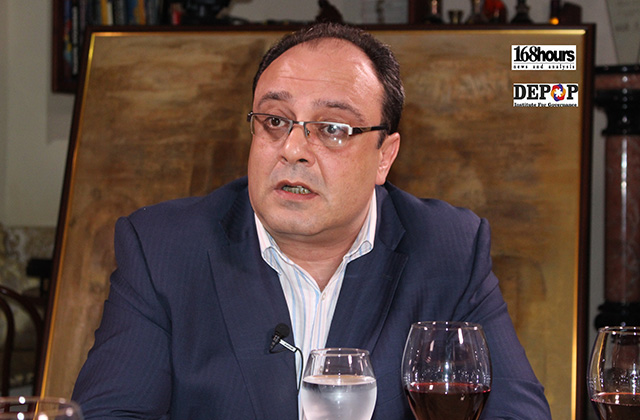
Ruben Mehrabyan: So, the issue is that it provides us the opportunity to purchase cheap armaments, or even for free.
Karen Bekaryan: Yes, we have those opportunities by CSTO: by some parts with market prices, and by some under quotas and etc. When we reach those armaments, purchased by those privileges, to Armenia’s borders, if aren’t a EEU member, what we gained by membership to CSTO, we have loss more than that, on account of the fact that we are on other customs zones. Can we afford such luxury now to ignore the opportunity of our immediate security? I’ve been head of “European Integration” NGO for 15 years, in this country, when people were speaking less of Europe at least on social or expert level, from Agarak to Georgian border, with big communities, villages I was attempting to develop European integration direction. However, let me say once again, there are issues, which one can’t ignore, can’t pursue an ostrich policy, moreover, when the alternatives in many cases resemble adventurism.
When it’s said: we’ll attempt to seek our security component in other places, let me only remind—we have a closed border with Turkey, which is a bilateral Armenia-Turkey border, Armenia-NATO border, Armenia-EU common customs space border. All these three are closed upon the will of one, and under this much good, positive relations with the EU, even under all positive signals given by the EU, that border won’t open. We have perfect cooperation with NATO in different fields, and naturally we’ll develop that cooperation. This time under those conditions NATO’s miscellaneous elements have to reckon with it, that Armenia-Turkey border has been unilaterally closed by Turkey. So what do we seek? Where is or realism in this case?
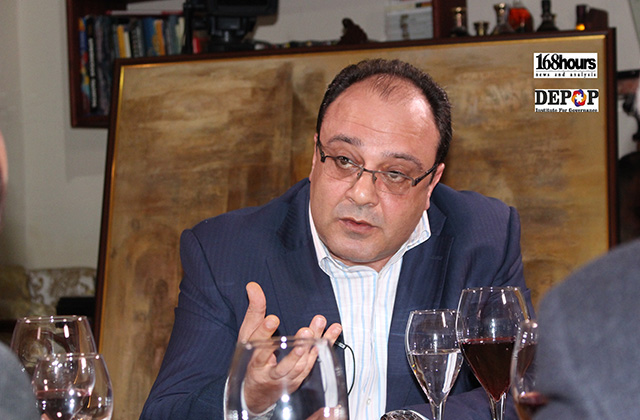
It was properly stated to come to the European market at least time is necessary to satisfy some standards. In case of a small country like ours, if you don’t appear in a big market, you won’t solve the issue of your existence in any way. Our entry to EEU gives a market of 180 million, i.e. a possibility is created for our businessmen. By coming to that market and raising the quality continue your course with the European, with which we have privileged conditions. When it was confirmed that we are ready to initial the AA with the EU, there were two paragraphs in that statement: first, it was stated that negotiations are ended and it’s possible to initial it, second, upon EU assessment, what Armenia will gain from it in a short and mid-term perspective—that number was very small, than if Armenia, not being a EEU member, brought energy resources from Russia through different lines, and not by EEU prices.
Now that we create this confusion and leave the impression that it’s an issue of values for us, we got involved in EEU not assessing the values of European direction, there is bluff in this. We didn’t involve in EEU, as we consider European values aren’t ours or we don’t strive to them, and we entered EEU…I repeat, any family solves security issue first, then has a possibility to take a breath to solve other issues.
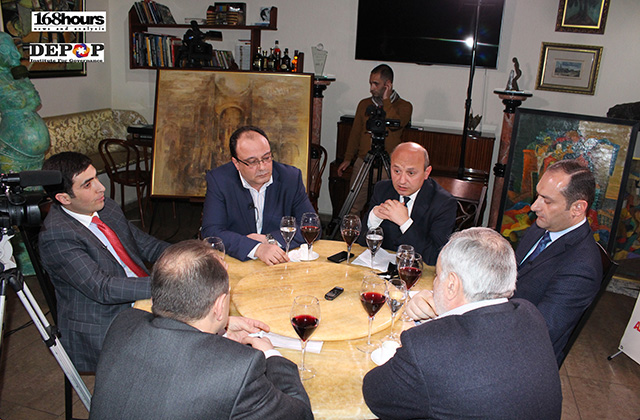
Ruben Mehrabyan: Mr. Zurabyan, how impressive are the arguments brought by RPA representative Karen Bekaryan?
Ararat Zurabyan: First, let me state, that we are in a pre-election stage and from time to time we enter fields, where, I consider, we have many shared approaches despite in each political team we are. Even if there are disagreements, they tend to one thing—we all want Armenia be a safer state, that it developed. As it was mentioned, I don’t consider any Armenian have the opportunity to provide his/her child Harvard education, and give preference to, for instance, Belarusian education. I’d say for what I’d criticize the Republicans, as it’s been long years power is in their hands, and I think, regarding lost opportunities these are issues, we should touch upon. Security factor in the very process of joining EEU was much higher, more stressed than it was.
Each state protects its interests, and here neither Kazakhstan, nor Belarus, nor Russia should be blamed. Unfortunately, we all edified that our authorities, there were cases, when our interests, slightly said haven’t been properly protected. I consider after the April developments our sobriety rose and I qualitatively stress it, there was its necessity, however, I also consider that sobriety has declined, and there was necessity to raise it. Throughout these years, as a country waging a war, realizing in which mutable period it is, also realizing that the world is dynamically developing, and sometimes changes are recorded, which you don’t manage, we speak of EEU, Russia, but one day we may all get up and see quite a different Russia with different leadership.
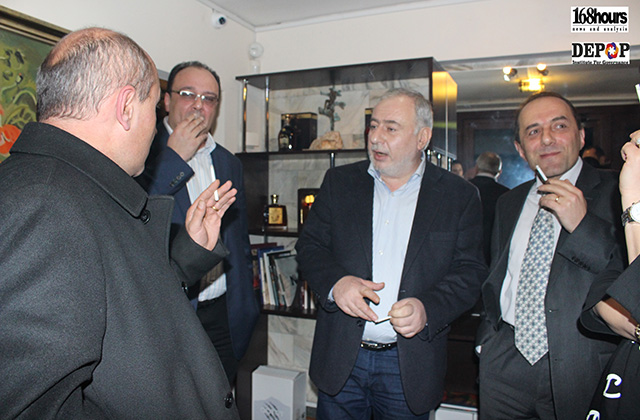
Ruben Mehrabyan: Like it happened twice in the last decade…
Ararat Zurabyan: In 1988 prior to the movement maybe no one could have thought that in this very region such developments might be recorded, and few could think that USSR would collapse. One thing is obvious, we are obliged to do one this, which is the most important. Generally, security depends on its comprising directions and factors. Armenia imports energy resources, Russia introduces that provides it with good conditions, many opposition reps believe it may be purchased from Iran by better conditions: I want to leave this contradicting, at the same time, morbid topic. Currently the world anticipates that after 10-15 years renewable energy will satisfy the need of the entire world. No one in Armenia today speaks of phenomena, which are much more important, e.g. by which price we’ll have gas, as, excuse me, if we received with a more expensive or cheaper price, our society would live. However, we should have our strategy for Armenia’s development, which should be peculiar, varying.
And that development shouldn’t be led to Armenia-Russia-Europe or civilized world-regression platforms debates and attempt to get blows. I consider we should find unique solutions for us, our state, our public. We have 920 communities, and suppose, after solving the issue of electricity supply we may forget both about gas and oil. Suppose, we have a few hundred thousand car in Armenia and even if we wish that people filled those cars by gas or gasoline, believe me, in 10-15 years use of cars with internal combustion engine will be banned in the world, as currently today more than 20 world car producers lead the country to a different direction. This should be taken into account.
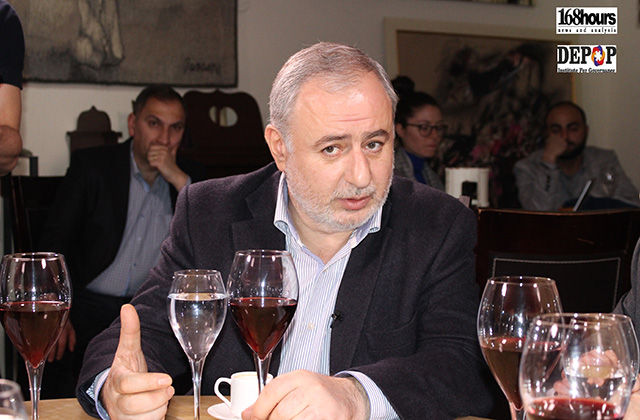
I consider greater part of our debates is artificial. We should think over Armenia’s development. As for foreign policy, only in case of developing Armenia may become a subject.
Ruben Mehrabyan: Mr. Arakelyan, your party seems not to appear with foreign policy initiatives until now, and there is an impression you have no objections with the policy pursued by the incumbent authorities. Will you provide your approaches? What would you change in this policy? What’s your assessment to our diplomacy?
Edgar Arakelyan: My colleagues already mentioned that foreign and domestic policies are interrelated and current social and economic condition in Armenia to some extent, is a result of foreign policy, as our country doesn’t make use of many opportunities and isn’t able to. But a lot can be changed in the foreign policy course. We saw many foreign policy developments linked to Armenia, when our diplomatic corps manifested rather passively. The very Georgia’s example, when regarding choice of the ambassador an attempt is made to show what attitude we show toward that country. I consider radical changes are necessary in our foreign policy.
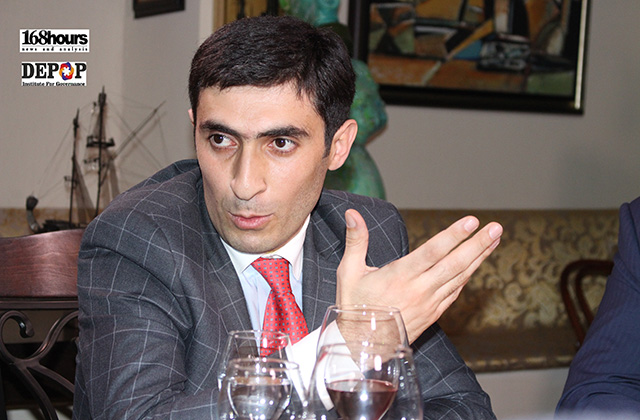
Regarding protection of interests of our country it’s much discussed both within CSTO and other international organizations, however, I should state, that naturally both Kazakhstan and Belarus, as well as others, should act upon their own interests, we should have the opportunity to develop our interests, which, unfortunately, in many cases we don’t see and we observe passive foreign policy.
Ruben Mehrabyan: Should we make it active?
Edgar Arakelyan: Yes.
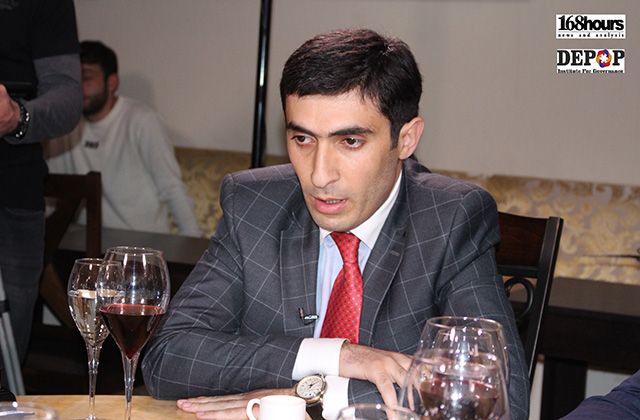
Ruben Mehrabyan: In the same direction or you imagine certain diversion?
Edgar Arakelyan: I consider extremeness won’t lead to something good. We should take into consideration that current situation and out of this situation we should seek for possible better options, I consider, current world gives us those options, simply we need to be active and develop that line, which comes from our national, state interests.
Ruben Mehrabyan: Mr. Zeynalyan, judging from the fact that your alliance has criticized the pursued policy, and the authorities consider what you imagine not realistic, maybe you’ll object to those approaches.
Artak Zeynalyan: Yes. First, we can import energy resources with a different price, than the market price, with a cheaper price. Remember, that prior to membership to EEU Armenia refused Iran-Armenia gas pipeline, and directly there was a hint that Armenia may have gas with a symbolic price, Ambassador to Iran said it may be by USD 100, with an incomparably low price. Thus, when Armenia conceded its economic, political independence, it appeared in a situation due to incumbent authorities, and that argument is beneath criticism. As a result, the April four-day war in 2016 was recorded.
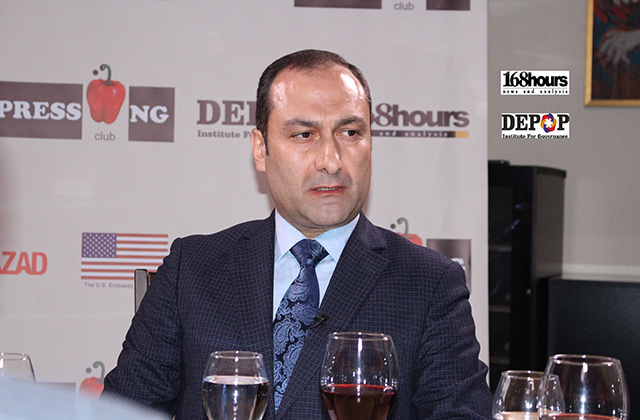
Ruben Mehrabyan: So, the point that it was stated in 2013 is conditioned by security, instead of security he had war.
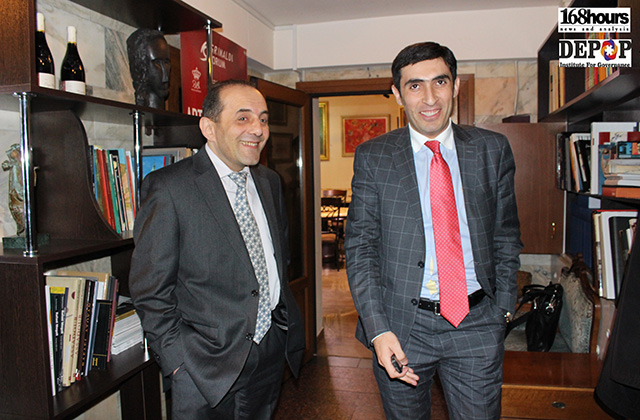
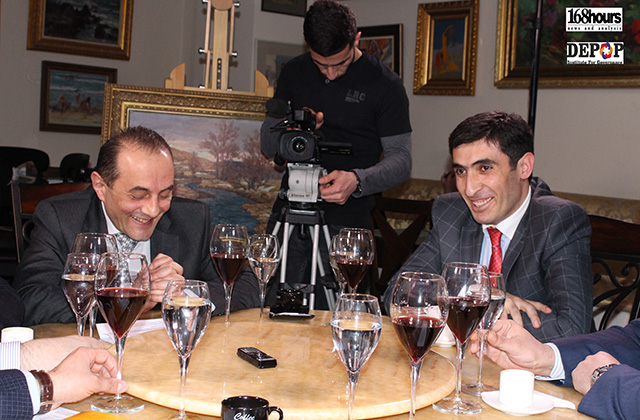
Artak Zeynalyan: Yes. The other point linked to arms: it was mentioned that in Armenia there are armaments of 1980s, it isn’t our statement, this is beneath criticism either. Thus, we continue insisting that membership to EEU was a political mistake, and the policy, which led to that. Our colleague, although comprising a part of the authorities, stated that in foreign policy our diplomatic activity is insufficient. In many cases we follow the developments, than we initiate, or in case of information availability preventive steps and actions are taken.
There is much likewise fiasco that Armenia lived as a result of bad diplomatic work. In case of coming to power we’ll change all this, also negotiations will be launched on signing AA, as well as DCFTA. Naturally, Armenian economy or standards will be complied with European standards to be able to become a member.
Ruben Mehrabyan: Mr. Safaryan, how persuasive were groundings by RPA representative Karen Bekaryan to you?
Styopa Safaryan: They aren’t convincing. Mr. Bekaryan touched upon seeking security there, it should be sought inside Armenia.
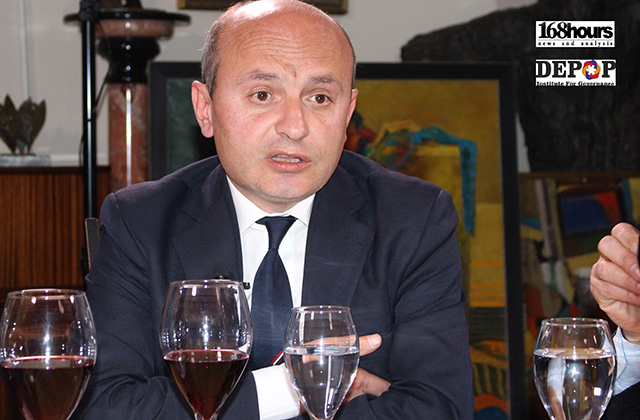
Ruben Mehrabyan: Please, give grounds.
Styopa Safaryan: Security is when there is enough money in the pocket of the Armenian citizen that any “Gazprom” isn’t able to blackmail by gas price. Security is that Armenia has enough money to buy lacking armaments at least by market price. Security is when Armenia’s legally formed leadership is able to import, also become a transit country for gas import to Europe, something that our neighbor Iran wants to do, however, as it’s adopted to say, it can’t do as our field is quite a different one and we aren’t allowed to play. In this regard as long as there are gas contracts, which aren’t reviewed, which define monopolies, as long as there is membership to EEU, we, unfortunately, won’t be able to sign a new agreement on deep and comprehensive free trade, which was rejected in 2012.
It was also touched upon that AA and the agreement on deep and comprehensive free trade planned mainly mid- and long-term benefits for Armenia’s economy, and just the contrary, they told as long as our products and services are close to those criteria, we’ll have short-term results. I mentioned pure numbers, and obviously, in the period of two years we didn’t have any short-term benefit, just the contrary, we had regress. And finally when will Armenia think over coming to bigger markets? Let me remind that the very Georgia isn’t a EEU member, has a bigger share in Russian market for wines, in particular, 17% in case, when EEU member Armenia has an insignificant share in Russian market.
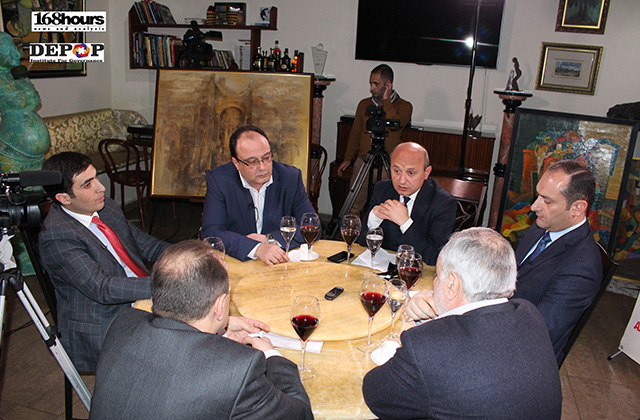
I don’t even speak of the markets of Kazakhstan and Belarus, as such index lacks. Accordingly, a question arises here: what’s the purpose of becoming a member of the EU and European family? An opportunity has been created for us, our businessmen, intellectuals, youth for visa-free entry, which isn’t only about travel, but for development of business ties, founding a joint business, more deepening integration and not have an entry to a market of 170 million, where even Lukashenko decides who should be in the market, where Putin decides who should be in the market and who—not. Accordingly, if we touch upon integration, there is only one choice for Armenia, it’s European direction. Yes, it’s going to be a pledge for raising our security, when our products will comply with European standards, in that case neither Angela Merkel will decide whether our products will be exported or no, nor the president of France or any other country, and there will be free move of capital, people, goods and services, which will bring an effect of synergism and multiple increase of Armenia’s security.
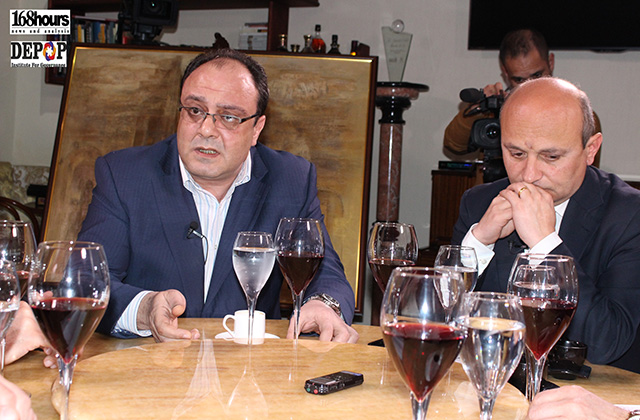
During today’s campaign a woman said to me, “I’m just back from Europe, and I saw everything is for a person there.” Finally, our purpose should be establishing a state, where a person will feel respected and dignified, and institutes will work, and not persons establish powers, and people depend on their will and only in the period from election to election, person’s issues should be solved not by persons, but by state institutes.
Finally, we can’t wait when EEU will collapse and we may take a different course, it’s very dangerous, we, as a small state, won’t suffer, accordingly, we should change the course, we should create those institutes in our country, which will already create additional value, which will fairly distribute that value. I consider, RPA perfectly realizes that Europe, Georgia bring gas much cheaper, than we do, however, no one talk about these manipulations, that Russia says it sells gas to us on the border—on the border Russia sells gas to its daughter company and that gas is being resold. Accordingly, there is an issue to be rich, pay by market price, but prosperity and progress can’t be promised in a situation, where there is a marsh. Let’s sober and realize that Armenia should change its course, and in this regard, security solutions, yes, are in our hands, and let’s not seek, not simulate being miserable, not become a subject for anyone’s care.
Artak Zeynalyan: A small remark regarding renewable energy: for the time being electricity demand is 15 times more as it’s produced.
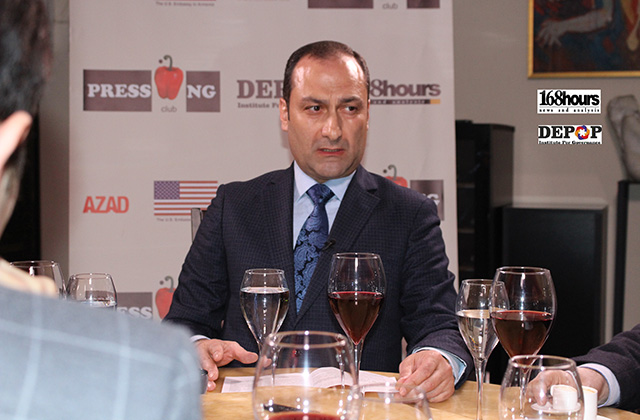
Ruben Mehrabyan: In Armenia or generally?
Artak Zeynalyan: Generally in the whole world. Renewable energy can’ fulfill that deficit, so that requirement for energy resources will be great.
Ruben Mehrabyan: The dominating discourse in Armenia is that there is no contrast in the point that Armenia is both in EEU and establishes relations with the EU, there is no contrast that Armenia is in CSTO and attempts to establish relations with NATO, however, we see, that between Russia and the West, accordingly, also between those organizations confrontation deepens and bears valued nature. Will Armenia succeed at least not to fall by this policy of non-contradiction in mid- and long-term perspectives?
Karen Bekaryan: Linked to renewable energy—many thanks to Mr. Zurabyan, for reflecting to this issue, there is a big part in RPA’s program linked to it. As for brought scary figures linked to EEU, experiment isn’t correctly carried out, the calculation isn’t correct, methodology either. While making calculations one should have an edge for contrast, which isn’t only what in the previous year, but what changes and dynamics your external environment had in that period. If we had the same international conjuncture, weren’t a EEU member, we could have these declines doubled or tripled. It’s important what we are touching upon, do we speak of a dream country or we compare the issue of those dreams and desires at least by capabilities?
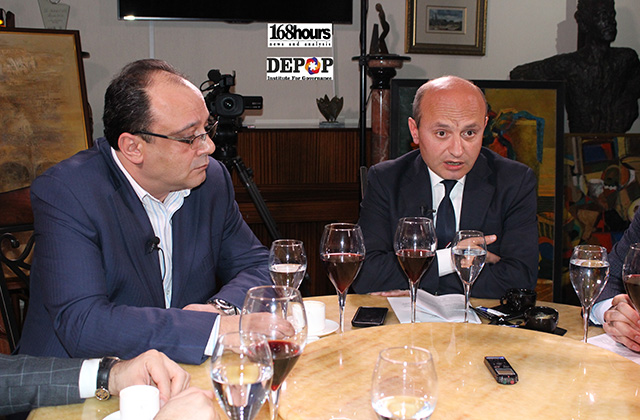
All these talks, our security by our wealth, our security by our pocket, and etc. have nothing to do with the present-day reality. As for foreign policy line and its certain transformations, let me bring one circumstance: Armenia’s foreign policy direction in the period of its three presidents, in fact, provided continuous effect, and this isn’t quite accidental as foreign policy isn’t the field, where one may bring dividends on account of manipulations. Our issues linked to Iran not only are connected to existent contract with Moscow and etc., but also by the point that time Iran was under indescribable big pressure of the West, the US and even small circle in Armenia-Iran relations brought to a big counter-effect from the very West.
Armenia isn’t original in the point that we have ambassadors, who have no diplomatic background: it’s an accepted order in the world that appointment of an ambassador is a political appointment and not always all those censes are maintained—diplomatic education, specialization and etc. Of course, there may be unsuccessful examples, but life goes on by the point that out of those examples you do certain changes and attempt to shift to a more productive variant. Issue of resources shouldn’t be forgotten as well—resources, like in any field of life, similarly reflect in the diplomatic work. One shouldn’t blame the entire diplomatic corps. When you attempt to cut everything from international conjuncture, you give some isolated snapshot, a state of dreams, let’s not confuse our society with these elements.
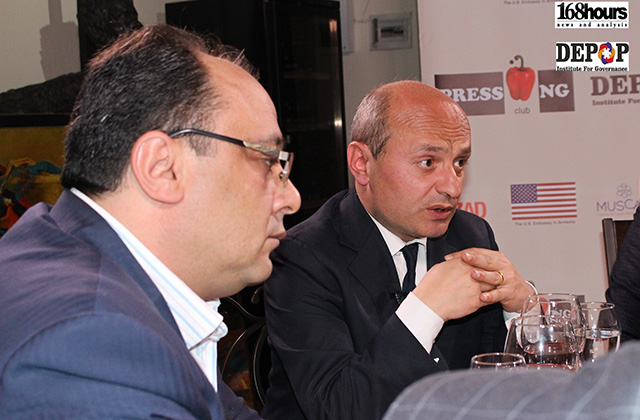
Styopa Safaryan: We don’t. But why was the April war recorded?
Karen Bekaryan: I want to correctly pose the question: in the April War we had at least equal condition and such power balance, that Azerbaijan didn’t solve the issues it set, at least on the volume it planned, it wasn’t able to. Accordingly, if we even prior to that had made some diversions, shortcomings and etc. in our security issue, will the April War had the same outcome it had? Of course, not. Isn’t that very balance element that vanished its imagined, dreamed vision? Surely, it’s the Armenian soldier, patriotism, but it’s also all other security components, from which greater part is under Armenia-Russia bilateral ties, one part under the existence of Russian military base, one part under the opportunities established by CSTO, one part in EEU, the opportunity to bring those armaments without paying customs duties. In this case different postures of Belarus, Kazakhstan, of course should be worth reflection and we have all fixed that, but this isn’t decisive for the balance scale, it’s the big components, which I tried to enumerate.
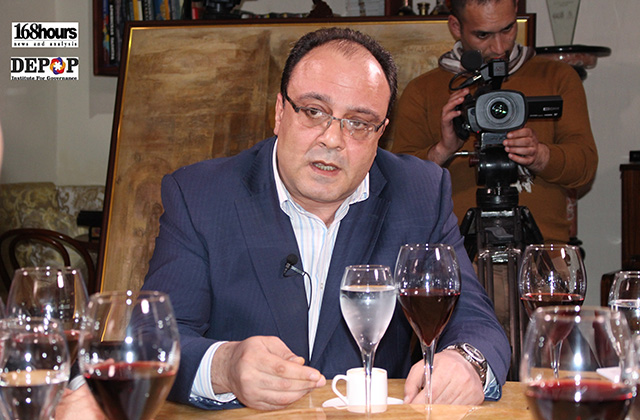
Ruben Mehrabyan: Mr. Zurabyan, will Armenia be able to avoid this balanced approach, that we always say, that nothing contradicts or we attempt to do so that it didn’t contradict? Will we succeed or not, and what should be done to that end?
Ararat Zurabyan: I consider, I any case negotiations will win in the world: we have an issue, I’d like to draw that issue to a bit philosophic platform: it isn’t the issue of Armenia and systems, but systems, where Armenia attempts to live. It’s the destiny of our people, constantly be on the focus of two systems and attempt to provide concrete vitality. Of course, this is a very difficult issue. How much will it succeed? I think it’ll succeed now, as the world has changed, a bit civilized, all opportunities should be used in those platforms.
We’re touching upon what kind of a country we want to have, what is possible to do today, we realize available resources and opportunities, we should be a bit frank toward each other, say something, that the authorities really suffered losses, has unused opportunities. An elementary point, the very military-industrial complex shouldn’t be attached attention now, that after the April War that direction developed, but started from war, when some systems were initiated, when an attempt was made to do something. Armenia should have already had normal military-industrial complex, as a quarter century has passed.
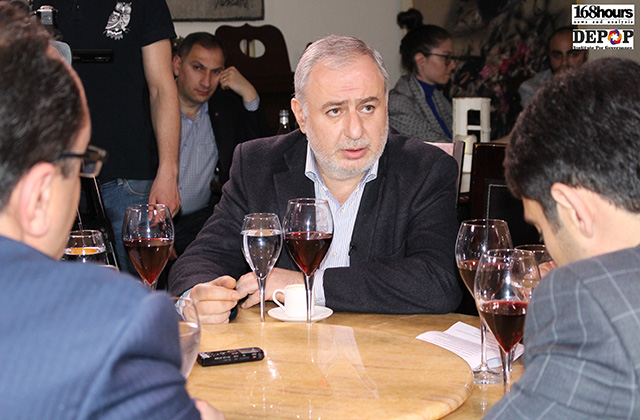
However, we have realities, in which we live, that this can be bought by this price in honor of people, who are more informed, never certain data have been uncovered and outspoken, what was imported and by which price, all those aware will also know that a lot has been imported by ridiculous prices, and Azerbaijan succeeded to purchase a similar system by price 40 times more expensive. These are realities, which we don’t often speak. It isn’t from good days we’re living, but this is our reality, the way to overcome which isn’t in the field of foreign policy but in Armenia, in its transformation, a change in our hearts, minds, if we succeed, I think we may confront any challenge, if it doesn’t occur we won’t be a state.
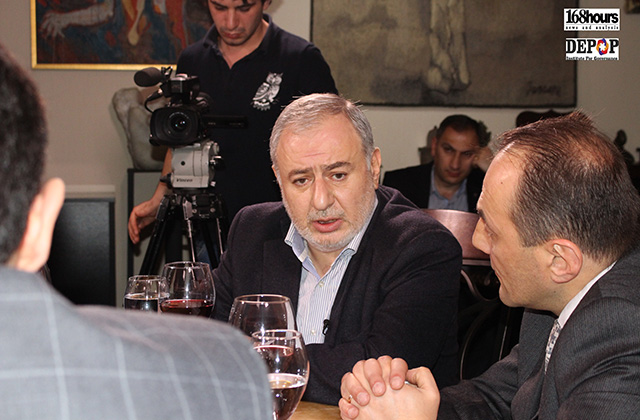
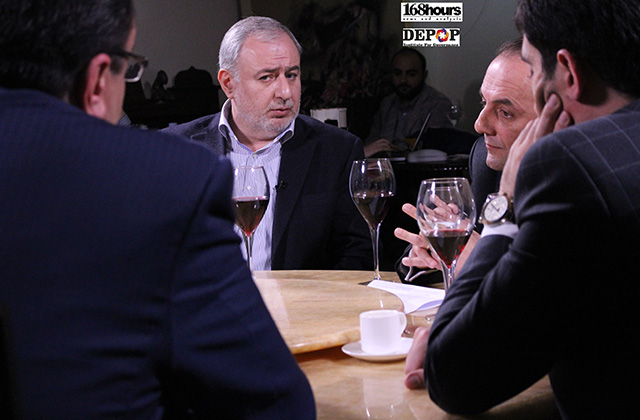
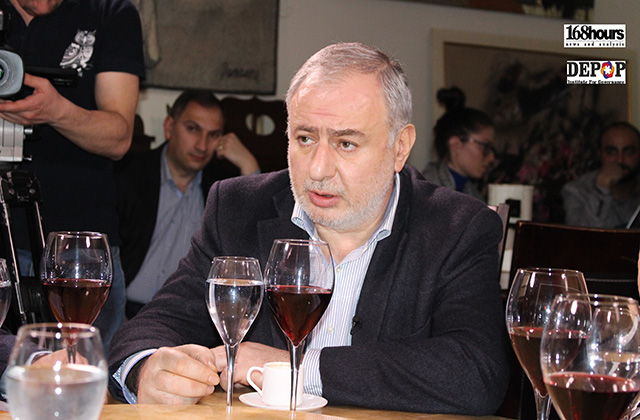
Ruben Mehrabyan: Mr. Arakelyan, will Armenia succeed to maintain itself in this non-contrasting realty as a subject, and is everything done presently? Do arguments brought by Mr. Bekaryan satisfy you or not?
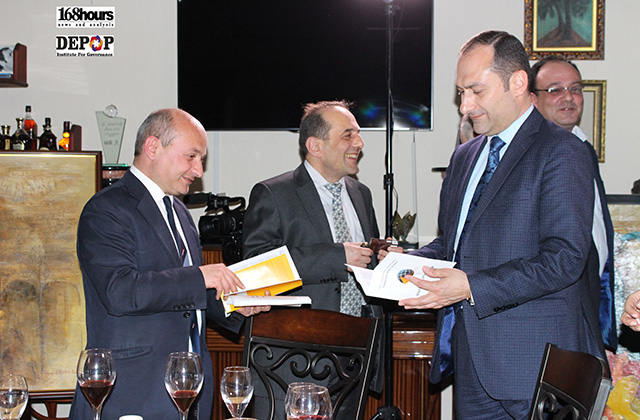
Edgar Arakelyan: I consider, at a certain moment, at a certain period we’ll contradict some geopolitical centers, processes, but I’d like that contrast not turn into collision. That’s why we should develop our internal resource. I consider it’s a rather big resource, which isn’t presently used, both human and economic. I think these are resources, which we don’t use, we also see that steps aren’t taken to correctly use those resources, to keep them in our country. Prior to the April War, also after it, it has been repeatedly stated on development of military-industrial complex, installation of cameras on the border, however, unfortunately, after the very April War only active steps have been taken. There were certain cases, however, they didn’t’ bear a ubiquitous nature. I consider it’ll be possible to balance our foreign policy if we succeed to properly use our internal resource.
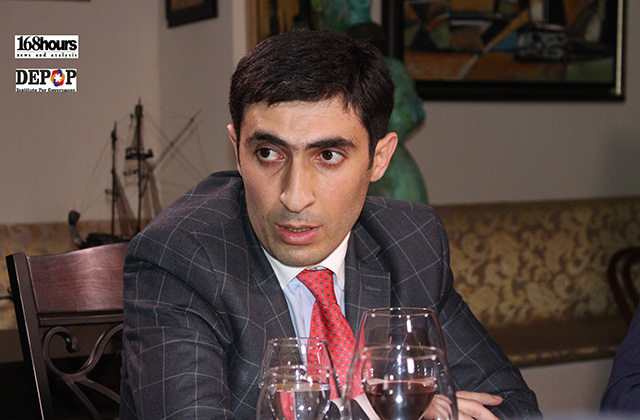
Ruben Mehrabyan: Mr. Zeynalyan, we attempt not to observe a contrast in these two directions. Do you agree and will Armenia succeed to avoid from staying amid?
Artak Zeynalyan: I can’t but agree with the observation that it’s necessary to have a strong state from inside to confront foreign policy challenges, a consolidated society and people’s support, reserves for internal strength. In the period of recent 15 years the authorities didn’t enjoy people’s trust, election results have been forged, there is such a conviction among the public, and the authorities have undergone foreign policy manipulations, lost its independence, as inside there was a constant threat to leave the power.
Accordingly, it’s of paramount importance, that in the upcoming elections the leadership was developed by the people, and the latter believed in formation of the leadership by themselves and gain people’s support. Undoubtedly, it’s a rather complicated situation, there is clash of interests, and to balance this it’s definitely necessary that there was internal stability and strength. Let’s not forget the case, when Putin stated that “Property for debt” program was proposed by Armenia’s leadership.
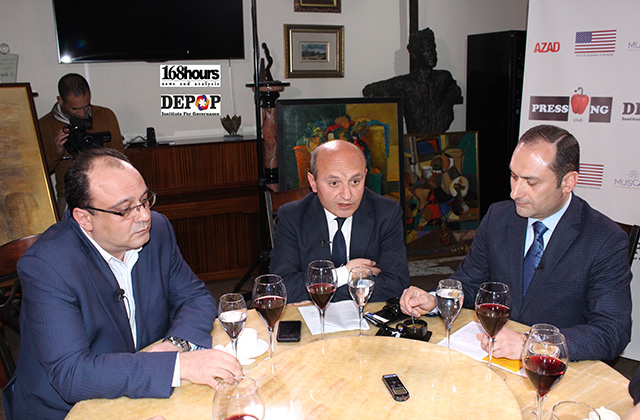
Ruben Mehrabyan: Do you mean the deal of 2002?
Artak Zeynalyan: Yes. After it, Armenia, has constantly, conceded its independence, at least to provide external support from the north—both economic and political.
Styopa Safayan: A few remarks: Armenia’s 3 presidents thought so, as they developed almost the same line, as it was the desire of the Kremlin, as for reproduction of those authorities we thanked Vladimir Putin. All deals on concession of sovereignty have been signed either on the threshold of authority reproduction, or after it, to prevent Armenia’s dangerous domestic policy development. We consider, we shouldn’t get along with the situation, which in most cases has been established as a result of our incorrect decision, but establish a situation, opportunities, otherwise, if we constantly adopt to the situation and circumstances, yes, we’ll constantly be the victim of conjuncture.
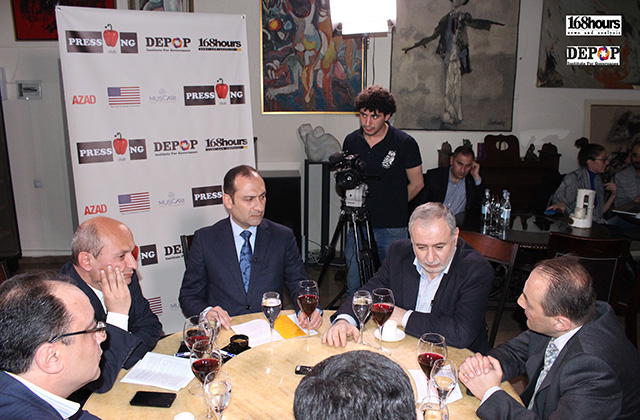
The Ukrainian scenario is being repeatedly stated, forgetting that 2016 April War was an original Armenian Maidan for us, regarding what happens to those, who are even obedient. Yes, Russia has created two models: one about what happens to the subject, and the other, what happens to rebels. We were subject, you know, it isn’t a secret that by that April War Russia pursued its interests and implementation of the Russian plan—it was deployment of Russian peacekeepers as a result of escalation of the situation, so that Karabakh directly passed under the Kremlin’s direct control.
Karen Bekaryan: When you say we knew, where from? You speak in a way as if it has already done and Karabakh is under the Kremlin’s control.
Ararat Zurabyan: I think even Republicans won’t object if Pentagon deployed a military base in Artsakh and provided security of the people of Artsakh.
Styopa Safaryan: We would object. Read the flow of an unknown diplomatic source that accompanied Lavrov in Russian media outlets after the April War.
Karen Bekaryan: Now I imagine if your text [to Styopa Safaryan—ed.] is written shorthand and is read abroad, reference will be made to things, that making reference to Lavrov’s councilor, analyst, the worst is still to come.
Styopa Safaryan: I say the unknown diplomatic source accompanying Lavrov uncovered the media outlet accompanying Lavrov regarding what they intend to do regarding the resolution. In this regard, Armenia’s sovereignty, yes, should be restored from inside: it’s a legally developed leadership, which stands any blackmail, compromise. It’s restoration of Armenia’s sovereign right to pursue independent, mutually beneficial policy in the field of economy, politics, security and etc. and elimination of all threats. This isn’t about the dream, but about a point which should make Armenian dream a reality, which came true in the USA, which is already becoming a reality in our neighboring Georgia.
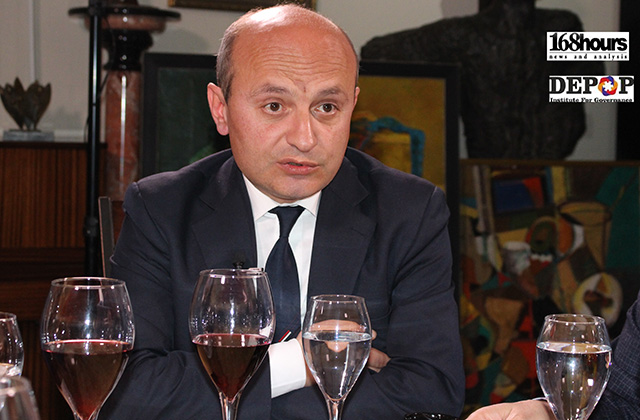
Our compatriots have already started to put differences between Armenia and Georgia. I consider with his/her mutual capabilities, intellect, business inclinations the Armenian doesn’t concede the Georgian, and I’m sure without review of the foreign policy course we won’t strengthen our internal reserve. Let me say one positive thing about the authorities: even Serzh Sargsyan is repeating for 3 years on being a bridge between two customs regimes—European and Eurasian, he constantly hints that staying in EEU, a deep agreement should be signed with the EU: it won’t occur, we’ve already been told it can’t happen.
Karen Bekaryan: Mr. Safaryan, it already occurred.
Styopa Safaryan: What?
Karen Bekaryan: The agreement: talks have been finalized.
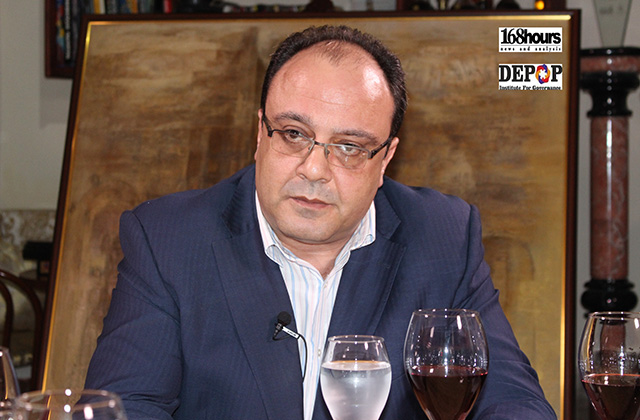
Styopa Safaryan: Do you compare the agreement with AA?
Karen Bekaryan: The president didn’t say we’ll sign AA.
Styopa Safaryan: For a year—2013-14 Serzh Sargsyan was asking to allow to sign at least the political part of AA. Accordingly, until foreign policy review is recorded, we won’t have a solid reserve in our domestic policy. And accordingly, the issue of Armenia’s sovereignty and returning Armenia’s sovereignty to the people is the imperative for Armenia’s security.
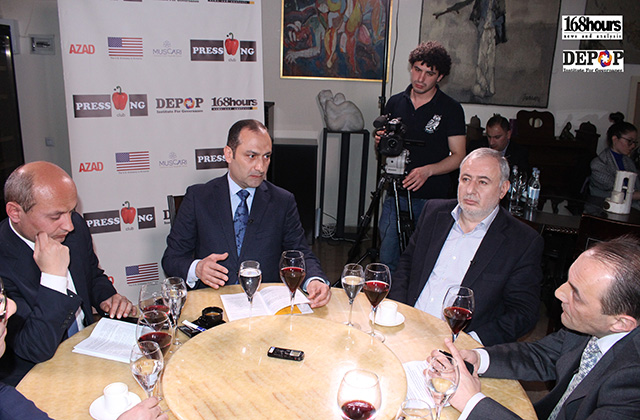
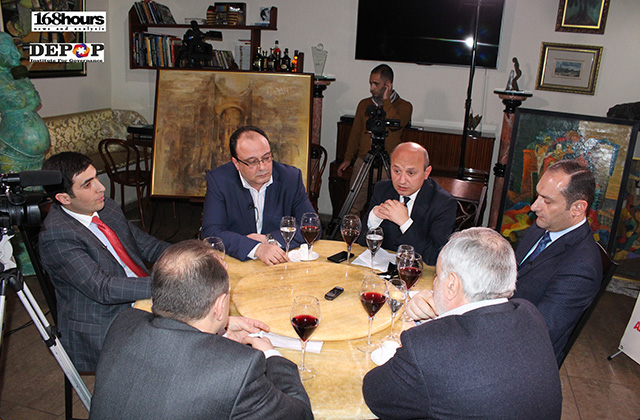
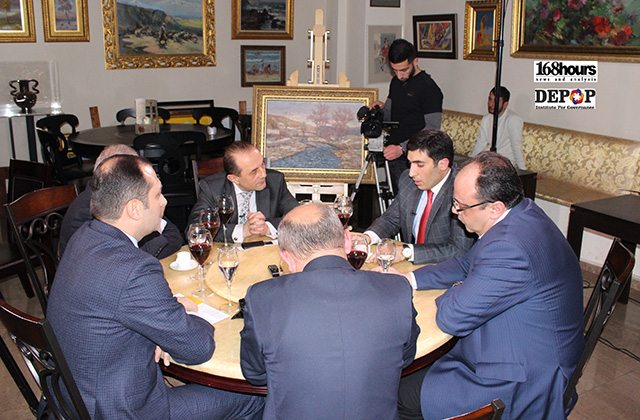
Karen Bekaryan: I fully support the element, that foreign policy is continuation of the domestic policy, and if we want a productive situation we should have it inside as well in all senses. However, I won’t develop that discourse—enumerated economic elements, other issues, which have been stated, as each of those issues may become here a subject for discussion by the very specialists of the field. As for foreign policy and a few observations: it has been repeatedly stated by Armenia’s president that we’ll multilaterally deepen relations with the EU, reach contractual law. Even there was an approach by Armenia, that political component of AA could have been signed separately, which had no contrast to membership to EEU and DCFTA. I mean this, and it has been implemented at least by the milestone that talks have been ended and we’re waiting for signing it.
Let me calm down Mr. Safaryan, we won’t lose the European direction, i.e. today we have a wide basis of engaging with the EU, which is almost equal to AA. Also, if it refers to visa liberalization and interpersonal communications, it’s already been stated that it’s a top agenda issue with the EU and we’re waiting for the latter’s reflection.
Styopa Safaryan: Currently we have liberalization of Russian passports.
Karen Bekaryan: Let me conclude with the idea, with which I started: in any family security issue is very important, civilized development of family members is of utmost importance as well, full use of their capabilities, self-expression. These two issues fail to be separated. An attempt to make us face a dilemma in the orbit of national and state interests of Armenia can never be in our interests. Naturally, by all possible resources, diplomacy, by all means, we should have the situations not to solve security on account of progress and vice versa. Whether want or no, they should develop in parallel, and all activity of foreign policy was directed to that throughout recent years and will be directed to it.
Styopa Safaryan: “Either…or” refers either to progress or to regress. Both can’t be chosen. We see the results. Our choice should be for the sake of development.
Karen Bekaryan: A very incorrect comment. Our choice is for development, that’s why European direction has never been beyond the agenda, and it’s constantly stated among the priorities.
Ani Keshishyan
Razmik Martirosyan
Photos—“168 Hours”






